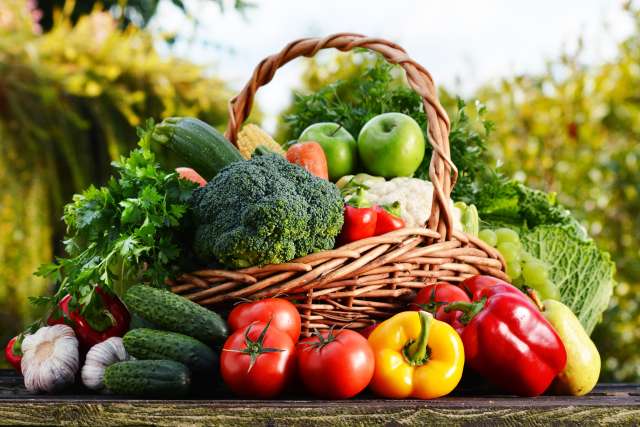Dear Doctors: My doctor recently said I’m borderline for Type 2 diabetes. I’m surprised because it does not run in my family. Can you avoid getting it? I read that when your diet is high in vegetables, your risk of Type 2 diabetes goes down a lot. Is that true? Are fruits OK?
Dear Readers: For anyone who isn’t familiar, having Type 2 diabetes means your body is no longer able to efficiently manage levels of blood glucose, commonly referred to as blood sugar. It’s a significant issue because high blood sugar, also known as hyperglycemia, can cause serious health problems.
Hyperglycemia that persists for months or years can lead to tissue damage, including to the nerves, kidneys, eyes and blood vessels. It can play a role in someone developing heart disease, nerve problems such as neuropathy, vision problems or vision loss, slow or incomplete wound healing and loss of sexual function. Type 2 diabetes also increases the risk of stroke and is a leading cause of kidney disease and kidney failure.
The most recent data show that 37 million Americans have diabetes. That’s 10% of the population. Of those, up to 95% have Type 2 diabetes. It’s a disease that typically develops in adulthood, most often in people 45 and older. However, that appears to be changing. In recent years, a growing number of adolescents and young adults are being diagnosed with it as well.
You are correct that Type 2 diabetes can run in families. But being overweight or obese, eating a poor diet and being sedentary also contribute to developing the disease. Unlike our genetic inheritance, which is set, each of these additional factors are ones we can take steps to control.
This is all quite sobering, so we’re glad to shift the focus to good news. Research continues to link a diet rich in fresh vegetables, leafy greens and fruit -- that’s whole fruit, not fruit juice -- to a lower risk of Type 2 diabetes.
This news includes the results of a large study published in 2020. The researchers analyzed the health data and dietary habits of 22,000 people over the course of a decade. Participants came from eight countries in Europe. This meant that other than the unifying characteristic of eating a lot of fresh vegetables and fruit, the rest of their diets were varied and diverse. The study found that a vegetable-forward diet may reduce risk by up to 50%.
The takeaway here is that each of us can take meaningful steps to lessen the risk of developing Type 2 diabetes. When shopping and cooking, reach for high-fiber and nutrient-dense vegetables, like broccoli, cauliflower, green beans, radishes, cabbage, mushrooms, zucchini and tomatoes. And yes, enjoy fruits like berries, apples, peaches, pears and apricots. They do contain sugar, so eat in moderation. But unlike sugary sweets, whole fruits contain fiber that moderates their effect on blood sugar.
You can start lessening your risk of Type 2 diabetes today, right now. Take a brisk 20-minute walk, then add a salad to your next lunch or dinner.
(Send your questions to askthedoctors@mednet.ucla.edu, or write: Ask the Doctors, c/o UCLA Health Sciences Media Relations, 10960 Wilshire Blvd., Suite 1955, Los Angeles, CA, 90024. Owing to the volume of mail, personal replies cannot be provided.)





